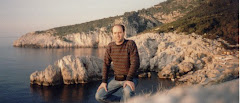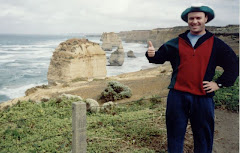Interviews in English
quarta-feira, 30 de novembro de 2011
Book of the Week - Moby Dick
Moby Dick
by Heman Melville
Moby-Dick; or, The Whale,[1] was written by American author Herman Melville and first published in 1851. It is considered by some to be a Great American Novel and a treasure of world literature. The story tells the adventures of wandering sailor Ishmael, and his voyage on the whaleship Pequod, commanded by Captain Ahab. Ishmael soon learns that Ahab has one purpose on this voyage: to seek out a specific whale--Moby Dick, a ferocious, enigmatic white sperm whale. In a previous encounter, the whale destroyed Ahab's boat and bit off his leg, which now drives Ahab to take revenge.
In Moby-Dick, Melville employs stylized language, symbolism, and metaphor to explore numerous complex themes. Through the main character's journey, the concepts of class and social status, good and evil, and the existence of God are all examined, as Ishmael speculates upon his personal beliefs and his place in the universe. The narrator's reflections, along with his descriptions of a sailor's life aboard a whaling ship, are woven into the narrative along with Shakespearean literary devices, such as stage directions, extended soliloquies, and asides. The book portrays destructive obsession and monomania, as well as the assumption of anthropomorphism--projecting human instincts, characteristics and motivations onto animals. Moby-Dick is ruthless in attacking the sailors who attempt to hunt and kill him, but it is Ahab who invests Moby-Dick's natural instincts with malignant and evil intentions. In fact, it is not the whale but the crippled Ahab who alone possesses this characteristic.
Moby-Dick has been classified as American Romanticism. It was first published by Richard Bentley in London on October 18, 1851, in an expurgated three-volume edition titled The Whale, and weeks later as a single volume, by New York City publisher Harper and Brothers as Moby-Dick; or, The Whale on November 14, 1851. The book initially received mixed reviews, but Moby-Dick is now considered part of the Western canon,[2] and at the center of the canon of American novels.
To download this book in PDF, go to:
http://www.planetebook.com/ebooks/Moby-Dick-2.pdfTo listen to an Audiobook, go to:
http://librivox.org/moby-dick-by-herman-melville/To watch the movie with subtitles in Portuguese:
For the other chapters, go to:
http://www.youtube.com/watch?v=HIfKubCgZ-4&feature=related
segunda-feira, 21 de novembro de 2011
My trips 6 - Peru
I went to Peru in September 2007 mainly in order to visit Machu Picchu, which by the way means Old Mountain in Quechua, the language spoken by the Incas. This place is amazing in many aspects, specially by how the rocks were piled up making the walls. The Incas could not write, so there is no written record of their achievements. Machu Picchu was a sacred place, there were no bathrooms there in the past, neither now.
You can't fit a single piece of paper between these stones
The twelve-angle stone - Cuzco
Shuttle bus that links Aguas Calientes to Machu Picchu
Inca Bridge
Jokes 17
The doctor to the patient: 'You are very sick'
The patient to the doctor: 'Can I get a second opinion?'
The doctor again: 'Yes, you are very ugly too...'
Son: Dad, what is an idiot?
Dad: An idiot is a person who tries to explain his ideas in such a strange and long way that another person who is listening to him can't understand him. Do you understand me?
Son: No.
Man: I could go to the end of the world for you.
Woman: Yes, but would you stay there?
Man: I offer you myself.
Woman: I am sorry I never accept cheap gifts.
Man: I want to share everything with you.
Woman: Let's start from your bank account.
The patient to the doctor: 'Can I get a second opinion?'
The doctor again: 'Yes, you are very ugly too...'
Son: Dad, what is an idiot?
Dad: An idiot is a person who tries to explain his ideas in such a strange and long way that another person who is listening to him can't understand him. Do you understand me?
Son: No.
Man: I could go to the end of the world for you.
Woman: Yes, but would you stay there?
Man: I offer you myself.
Woman: I am sorry I never accept cheap gifts.
Man: I want to share everything with you.
Woman: Let's start from your bank account.
terça-feira, 15 de novembro de 2011
Topics on Culture - Holidays - Thanksgiving
Thanksgiving Day is on Thursday, November 24, 2011.
History
In 1621, the Plymouth colonists and Wampanoag Indians shared an autumn harvest feast that is acknowledged today as one of the first Thanksgiving celebrations in the colonies. For more than two centuries, days of thanksgiving were celebrated by individual colonies and states. It wasn't until 1863, in the midst of the Civil War, that President Abraham Lincoln proclaimed a national Thanksgiving Day to be held each November. Thanksgiving is celebrated on the fourth Thursday of November in the United States. In Canada it is celebrated on the second Monday in October.
Thanksgiving at Plymouth
In September 1620, a small ship called the Mayflower left Plymouth, England, carrying 102 passengers—an assortment of religious separatists seeking a new home where they could freely practice their faith and other individuals lured by the promise of prosperity and land ownership in the New World. After a treacherous and uncomfortable crossing that lasted 66 days, they dropped anchor near the tip of Cape Cod, far north of their intended destination at the mouth of the Hudson River. One month later, the Mayflower crossed Massachusetts Bay, where the Pilgrims, as they are now commonly known, began the work of establishing a village at Plymouth.
Throughout that first brutal winter, most of the colonists remained on board the ship, where they suffered from exposure, scurvy and outbreaks of contagious disease. Only half of the Mayflower’s original passengers and crew lived to see their first New England spring. In March, the remaining settlers moved ashore, where they received an astonishing visit from an Abenaki Indian who greeted them in English. Several days later, he returned with another Native American, Squanto, a member of the Pawtuxet tribe who had been kidnapped by an English sea captain and sold into slavery before escaping to London and returning to his homeland on an exploratory expedition. Squanto taught the Pilgrims, weakened by malnutrition and illness, how to cultivate corn, extract sap from maple trees, catch fish in the rivers and avoid poisonous plants. He also helped the settlers forge an alliance with the Wampanoag, a local tribe, which would endure for more than 50 years and tragically remains one of the sole examples of harmony between European colonists and Native Americans.
In November 1621, after the Pilgrims’ first corn harvest proved successful, Governor William Bradford organized a celebratory feast and invited a group of the fledgling colony’s Native American allies, including the Wampanoag chief Massasoit. Now remembered as American’s “first Thanksgiving”—although the Pilgrims themselves may not have used the term at the time—the festival lasted for three days. While no record exists of the historic banquet’s exact menu, the Pilgrim chronicler Edward Winslow wrote in his journal that Governor Bradford sent four men on a “fowling” mission in preparation for the event, and that the Wampanoag guests arrived bearing five deer. Historians have suggested that many of the dishes were likely prepared using traditional Native American spices and cooking methods. Because the Pilgrims had no oven and the Mayflower’s sugar supply had dwindled by the fall of 1621, the meal did not feature pies, cakes or other desserts, which have become a hallmark of contemporary celebrations.
Try doing some exercises:
http://www.englishexercises.org/makeagame/viewgame.asp?id=5223
sábado, 5 de novembro de 2011
3 Songs for the Week
Ode To My Family
The Cranberries
Lips Like Sugar
Echo And The Bunnymen
Love Street
The Doors
Videos in English
Tips to succeed when studying English
Good x Bad
Greetings
Where are you from?
There is a huge variety of videos like these on Youtube. If you like any of them, double click on the video so, when you are transferred to Youtube, you may choose any other from the video list on the right hand side.
Assinar:
Postagens (Atom)

















